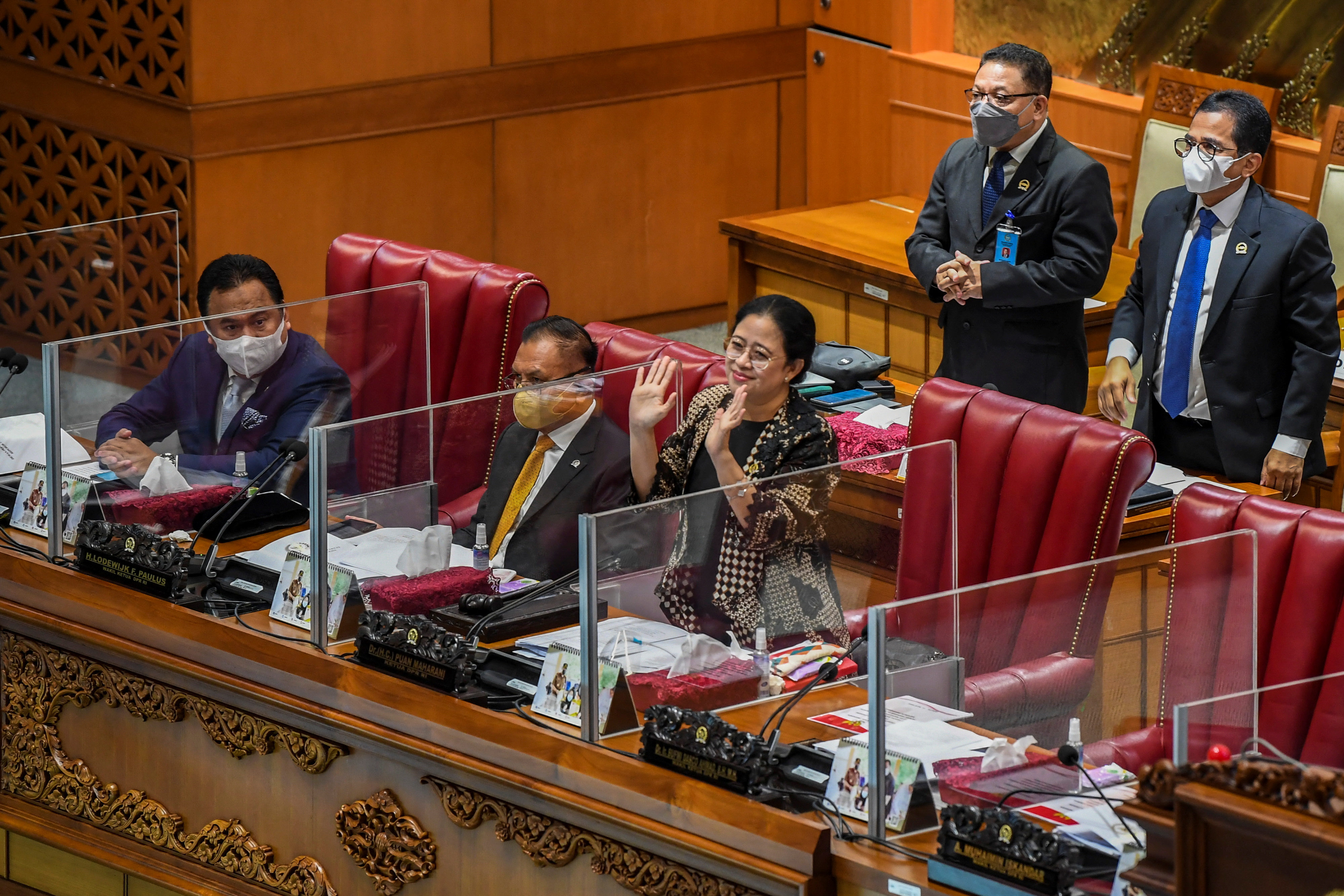Why is Indonesia's sexual violence law so important? [View all]
Why is Indonesia’s sexual violence law so important?
(A lengthy, most informative read)
The law, which took 10 years to pass, provides protections to victims of sexual violence including those in abusive marriages.
 ?resize=770%2C513
?resize=770%2C513
Speaker of the House Puan Maharani waves after Indonesia's parliament passed the landmark law against sexual violence [Galih Pradipta/Antara Foto via Reuters]
By Aisyah Llewellyn
Published On 14 Apr 202214 Apr 2022
Medan, Indonesia – With the strike of a gavel, Indonesia’s controversial sexual violence bill has been passed into law by parliament.
As legislators took to their feet on Tuesday to applaud the passage of the long-awaited bill, House Speaker Puan Maharani appeared visibly moved. The legislation was “a gift for all Indonesian women,” she said.
The bill, known as RUU TPKS, has been a long time coming. First proposed in 2012, it faced stiff opposition from conservative groups who argued over everything from its name to the contents of the law itself, requiring repeated revisions in an effort to ease its passage. Elizabeth Ghozali, a lecturer in criminal law at Santo Thomas Catholic University in the city of Medan, told Al Jazeera that the bill was a landmark piece of legislation that finally puts the rights of victims first. “Previously, Indonesian law was only focused on punishment in sexual violence cases. That was seen as the entire scope of the law and a sign that it had done its job,” she said.
“We need progressive law in Indonesia that thinks about the victims and accommodates their rights.”
What does the law cover?
The new law sets out nine different kinds of sexual abuse, including physical and non-physical sexual abuse, forced contraception, forced sterilisation, forced marriage, sexual torture, sexual exploitation, sexual slavery and sexual abuse through electronic means.
It allows for prison terms of up to 12 years for crimes of physical sexual abuse, 15 years for sexual exploitation, nine years for forced marriage, including child marriage, and four years for circulating non-consensual sexual content. Crucially, the law also recognises sexual abuse both within and outside of marriage. Indonesia’s current Criminal Code does not acknowledge marital rape.
The law also recognises other forms of sexual abuse such as rape, obscenity, sexual violence against children, pornography, and forced prostitution, although these are also included under different sections of Indonesia’s Criminal Code and other specific laws such as Indonesia’s Child Protection Law. The law also stipulates that victims of sexual violence receive restitution and be provided with counselling. According to Usman Hamid, the head of Amnesty Indonesia, the law is “a long-overdue step forward for protecting the rights of victims of sexual violence in Indonesia”. “This historic moment could only be achieved due to the persistence and hard work of civil society organisations, particularly women’s rights groups, as well as sexual violence survivors and their families, who continually worked to raise awareness about the urgency of the issue for nearly a decade,” he told Al Jazeera.
. . . .
https://www.aljazeera.com/news/2022/4/14/explainer-why-is-indonesias-sexual-violence-law-so-important
 ?resize=770%2C513
?resize=770%2C513